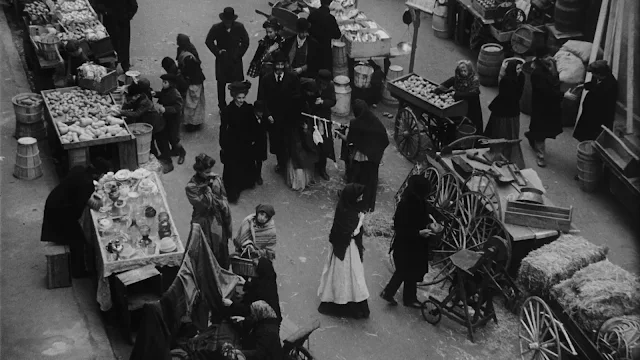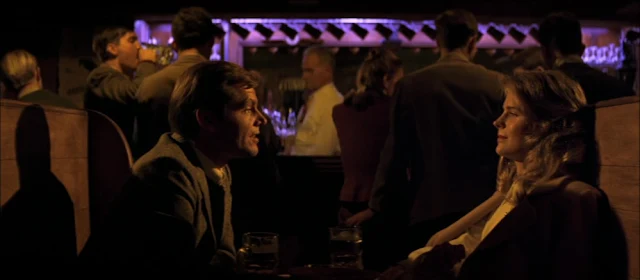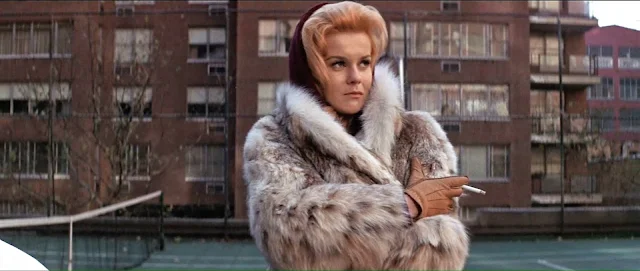 |
| Diane Keaton and Woody Allen in Annie Hall |
Alvy Singer: Woody Allen
Annie Hall: Diane Keaton
Rob: Tony Roberts
Allison: Carol Kane
Tony Lacey: Paul Simon
Pam: Shelley Duvall
Robin: Janet Margolin
Mom Hall: Colleen Dewhurst
Duane Hall: Christopher Walken
Director: Woody Allen
Screenplay: Woody Allen, Marshall Brickman
Cinematography: Gordon Willis
Costume design: Ruth Morley
Annie Hall is generally recognized as the movie that took Woody Allen from being a mere maker of comedy films like
Bananas (1971) and
Sleeper (1973) that were extensions of his persona as a stand-up comedian and into his current status as a full-fledged auteur, with a record-setting 16 Oscar nominations as screenwriter, along with seven nominations as director (the same number as Steven Spielberg, and only one less than Martin Scorsese). It is one of the few outright funny movies to have won the best picture, and also won for Diane Keaton's performance and Allen's direction and screenplay. Watching it today, in the light of his later work, I still find it fresh and original and frankly more satisfying than most of his later films. Marshall Brickman shared the screenwriting Oscar for
Annie Hall and was also nominated along with Allen for the screenplay of
Manhattan (1979), as was Douglas McGrath for
Bullets Over Broadway (1995), one of his most entertaining later movies. Is it possible that Allen should have worked with a collaborator more often? Would that have curbed his tendency to overload his movies with existentialist conundrums and his increasingly creepy fascination with much younger women -- viz., Emma Stone in
Irrational Man (2015) and
Magic in the Moonlight (2014), Evan Rachel Wood in
Whatever Works (2009), and Scarlett Johansson in
Scoop (2006) and
Match Point (2005)? But it does Allen's achievement in
Annie Hall a disservice to view the film in light of his later career (and his private life). He made a step, not a leap, forward from the goofy early comedies by playing on his stand-up persona -- the film opens and ends with Alvy Singer (Allen) cracking jokes and includes scenes in which Alvy does stand-up at a rally for Adlai Stevenson and at the University of Wisconsin. What makes the movie different from the "early, funny ones" -- as a rueful running gag line goes in
Stardust Memories (1980) -- is his willingness and ability to turn Alvy into a real person who just happens to be very funny. Keaton's glorious performance also succeeds in giving dimension to what could have been just a caricature.
Annie Hall may not have deserved the best picture Oscar in a year that also saw the debut of
Star Wars, Steven Spielberg's
Close Encounters of the Third Kind, and Luis Buñuel's
That Obscure Object of Desire, but it's easy to make a case for it.

-nig_1000_420_c1.png)


.jpg)






























